Healthy food, healthy planet
Imagine a world where food is sustainably sourced, locally produced, and accessible to all. By addressing the broken food system, we can protect our planet and improve health. Together, we can create a sustainable food system that nurtures both people and nature.
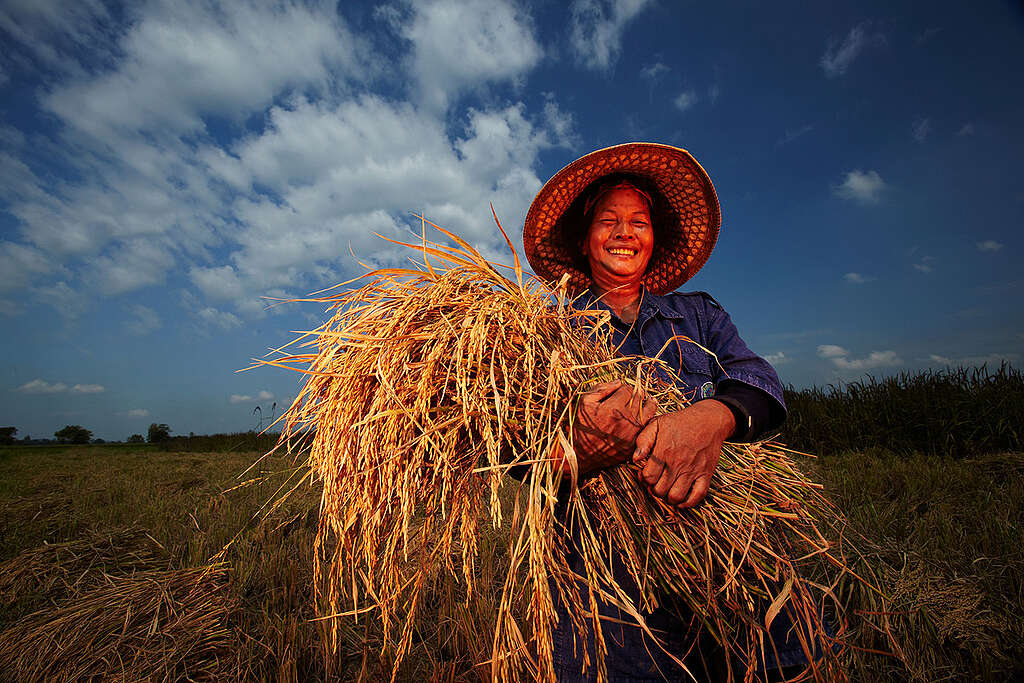

1/3
of global emissions come from food systems, with livestock, energy use, and fertilizer use being major culprits.

80%
agribusiness is a primary driver of deforestation worldwide, responsible for around 80% of global deforestation

70%
of the world’s freshwater is used for agricultural purposes, with 41% of this amount dedicated solely to producing livestock feed
Why a Sustainable Food System Matters to You:
Fixing our broken food system directly impacts your health, finances, and the environment. Eating nutritious, locally grown food reduces exposure to harmful pesticides and additives. Supporting local farmers keeps food prices stable and benefits your community’s economy. Environmentally, sustainable practices reduce deforestation and greenhouse gas emissions, slowing climate change and preserving natural habitats. By making informed choices, you contribute to a healthier planet and a better future for you, your family and everyone.
Corporate greed has resulted in a broken food system where profit takes priority over the safety of the people it should provide for and the environment it exploits. To change this, we must return to the root purpose of food—to nourish and empower individuals and communities.
The answer then lies in prioritising the community through a socially just, sustainable, and resilient food system—an ecological food system that puts people and the environment first and supports food justice.
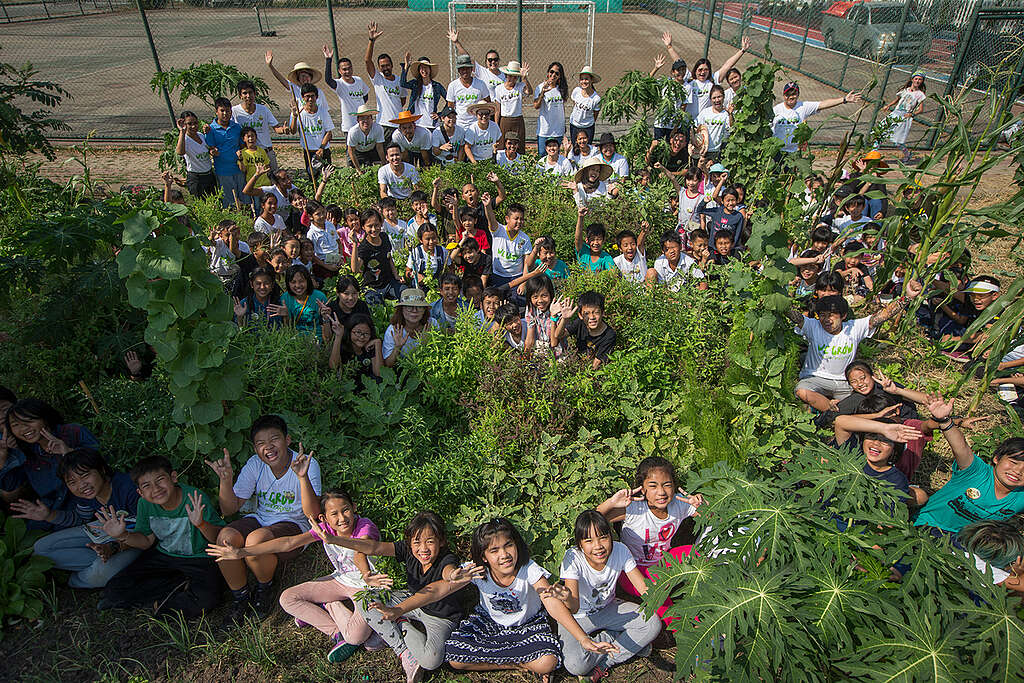
At Greenpeace, we recognise, support, and thrust forward seven principles of an ecological food system through ecological farming, which entails:
1. Food sovereignty
Ecological Farming supports a world where producers and consumers, not corporations, control the food chain. Food sovereignty is about the way food is produced, and by whom.
A handful of large corporations control large parts of our food system right now – informed by the demands of a disconnected commodity market. Food sovereignty takes this control, and places it in the hands of the people who produce, distribute, and consume food. It ensures that farmers, communities and people have the right to define their own food systems.
Food sovereignty acknowledges the role of women as the backbone of rural communities, and the historic role women have played in gathering and sowing seeds, as guardians of biodiversity and genetic resources. Addressing gender equity issues is part of the broad concept of Food Sovereignty about who controls the food we grow and eat.
2. Benefitting farmers and rural communities
Ecological Farming contributes to rural development and fighting poverty and hunger, by enabling livelihoods in rural communities that are safe, healthy, and economically viable.
It is one of the most perverse incongruities of our current food system that the people who produce our food – farmers, farm workers and fisherfolk – often suffer most from poverty and a lack of access to food.
Evidence from Ecological Farming initiatives across the world shows that Ecological Farming – when sufficiently supported by policy instruments – can be a successful tool in providing stable financial benefits to smallholder farmers, in turn benefitting rural communities and advancing their rights to a rewarding and secure livelihood.
3. Smarter food production and yields
To increase food availability globally, and to improve livelihoods in poorer regions, we must reduce the unsustainable use of what we grow at the moment and we must reduce food waste, decrease meat consumption, and minimise the use of land for bioenergy. We must also achieve higher yields where they are needed – through ecological means.
Feeding the world’s population – which keeps growing and, on average, getting wealthier– is not (just) about quantity. The important question is where and how we grow more food, and where we make other changes. Yields need to be increased in regions where they are very low right now, due to poverty, lack of resources, soil degradation, and the inadequate use of water. In other parts of the world, we need to reduce meat consumption, the use of croplands for bioenergy, and food waste.
Right now, corporations and food policy makers are stubbornly sticking to an increase in yields as the global goal. This obscures the real challenge – we need to rethink how we use the food we are producing right now, and in the future. In a better food system, ecological livestock systems would make use of the agricultural land and resources not required for human food needs, and at the same time drastically reduce the amount of animal products we produce and consume globally. Equitable distribution, however, would mean that some regions could still improve their diets with animal products.
Blindly increasing yields – at any price, anywhere in the world – is not a solution. Doing so in the US, for example, where a large proportion of the maize is grown for domestic fuel needs, does not help farmers in Africa or Asia. Ecological Farming would create a system where we increase yields where they are most
needed – through ecological means.
4. Biodiversity
Ecological Farming is about nature’s diversity – from the seed to the plate, and across the entire agricultural landscape. It is about celebrating the flavour, nutrition, and culture of the food we eat, improving diets and health.
Our current model of agriculture promotes monocultures. Vast areas of land are given over to genetically uniform plants, with little biodiversity and no refuge for wild plants or animals. This way of farming minimises the services a functioning ecosystem can provide, and it badly affects our health through poorer diets and a lack of nutritional diversity.
Ecological Farming systems do the opposite. They place nature’s diversity at their core. In doing so, they not only protect the natural habitats that are vital for biodiversity protection. They also take advantage of what nature offers in return: wild and crop seed diversity, nutrient cycling, soil regeneration, and natural enemies of pests, for instance.
Ecological Farming combines modern technology and farmers’ knowledge to develop advanced diverse seed varieties, which helps farmers to grow more food in a changing climate, without risking biodiversity with genetically engineered crops, or harming it with pesticides.
5. Sustainable soil health and cleaner water
It is possible to increase soil fertility without the use of chemicals. Ecological Farming also protects soils from erosion, pollution, and acidification. By increasing soil organic matter where necessary, we can enhance water retention, and prevent land degradation.
Ecological Farming pays central attention to nourishing the soil. It maintains or builds up soil organic matter (for example with compost and manures), and, in doing so, feeds the diversity of soil organisms. It also aims to protect wells, rivers, and lakes from pollution, and to make the most efficient use of water.
All this is vital in a world where agriculture is now the biggest user of fresh water, globally, and, in many regions, also the major contributor to water contamination, with nitrogen and phosphorus fertiliser pollution one of the major threats to the stability of life on the planet (Steffen et al., 2015).
Ecological pest management
Ecological Farming enables farmers to control pests and weeds – without the use of expensive chemical pesticides that can harm our soil, water and ecosystems, and the health of farmers and consumers.
Toxic chemical pesticides are a hazard for our health, and for the health of the planet. Unfortunately, the industrial farming model depends on large quantities of herbicides, fungicides, and insecticides for its very existence. Our current food system has locked farmers into a costly relationship with the corporations that sell these chemicals.
Resilient food systems
Ecological Farming creates resilience: it strengthens our agriculture, and effectively adapts our food system to changing climatic conditions and economic realities.
Embracing diversity – growing different crops at the field and landscape levels – is a proven and highly reliable way to make our agriculture resilient to increasingly unpredictable changes in the climate. Well-tended soil, rich in organic matter, is much better at holding water during droughts, and much less prone to erode during floods. Farmers can benefit in another way – if your farming is diverse, so is your stream of income – providing security in uncertain times.
A redesigned food system would provide large-scale carbon sinks and many other ways to reduce greenhouse gases in the atmosphere (climate mitigation). Nutrient cycling, biological nitrogen fixation, and soil regeneration would reduce carbon emissions. And while livestock plays a key role in agroecosystems, animal production and consumption would be changed radically. All this makes Ecological Farming one of the most powerful tools we have in the fight against climate change.
By pushing for ecological farming and an ecological food system, we also support food sovereignty and the necessary steps to protect the basic human right to food for generations to come.
Steffen, W., Richardson, K., Rockström, J., Cornell, S. E., Fetzer, I., Bennett, E. M., Biggs, R., Carpenter, S. R., de Vries, W., de Wit, C. A., Folke, C., Gerten, D., Heinke, J., Mace, G. M., Persson, L. M., Ramanathan, V., Reyers, B. & Sörlin, S. 2015. Planetary boundaries: Guiding human development on a changing planet. Science
How you can help
-

Surat Dukungan Global: Solidaritas Bersama Para Nelayan
Tidaklah mudah bagi seseorang untuk menghadapi perusahaan besar yang memiliki sumber daya dan pengaruh kuat seperti Bumble Bee–sebuah perusahaan tuna kaleng asal Amerika Serikat bernilai jutaan dolar. Namun demikian, sekelompok nelayan migran Indonesia sedang melakukannya. Surat ini akan disampaikan kepada tim kuasa hukum para penggugat sebagai simbol dukungan dan solidaritas. Kami, individu dan organisasi yang…
-

全球連署:一起捍衛漁工人權
全球連署:一起捍衛漁工人權 「以己之力,對抗資源雄厚的大企業」,從來不是一件容易的事情,但這群印尼漁工做到了。他們勇敢站出來,向美國前三大鮪魚罐頭品牌大黃蜂(Bumble Bee)爭取自己的權益。此封連署信將會交給他們的法律團隊,並分享給漁工們,以表達您的支持與聲援。 我們在此向那些對大黃蜂提起人口販運訴訟的漁工們表達聲援。根據訴狀,提告漁工們表示,他們在供貨給大黃蜂的漁船上捕撈鮪魚時,曾遭遇包含肢體暴力、精神虐待、未受治療且危及生命或導致殘障的傷害、抵債勞務、超時工作、扣發薪資,以及對其家人進行財務威脅等情況。 漁業是地球上最危險也最孤立的工作場所之一,全球估計有超過 128,000 名漁工處於強迫勞動的工作環境中。為了供應市值高達 3,500 億美元的全球海鮮產業,過度捕撈與破壞性漁法正加速掏空我們的海洋資源。這兩個相互交織的問題,不只讓海洋生態陷入惡性循環,也剝削漁業勞工的權益,並對全球沿海社區造成嚴重衝擊。 在此,我們同聲譴責並呼籲: 為此我們與漁工們站在一起 在此簽名 工會: 非營利組織: 企業: 個人: 請參閱此處
-

Solidarity with Fishers
It is never easy for individuals to go up against large, well-resourced, and influential corporations like Bumble Bee, but a group of Indonesian fishermen are. This letter will be delivered to their legal team with a request to share it with them as a symbol of support and solidarity. We, the undersigned individuals and organizations,…
-
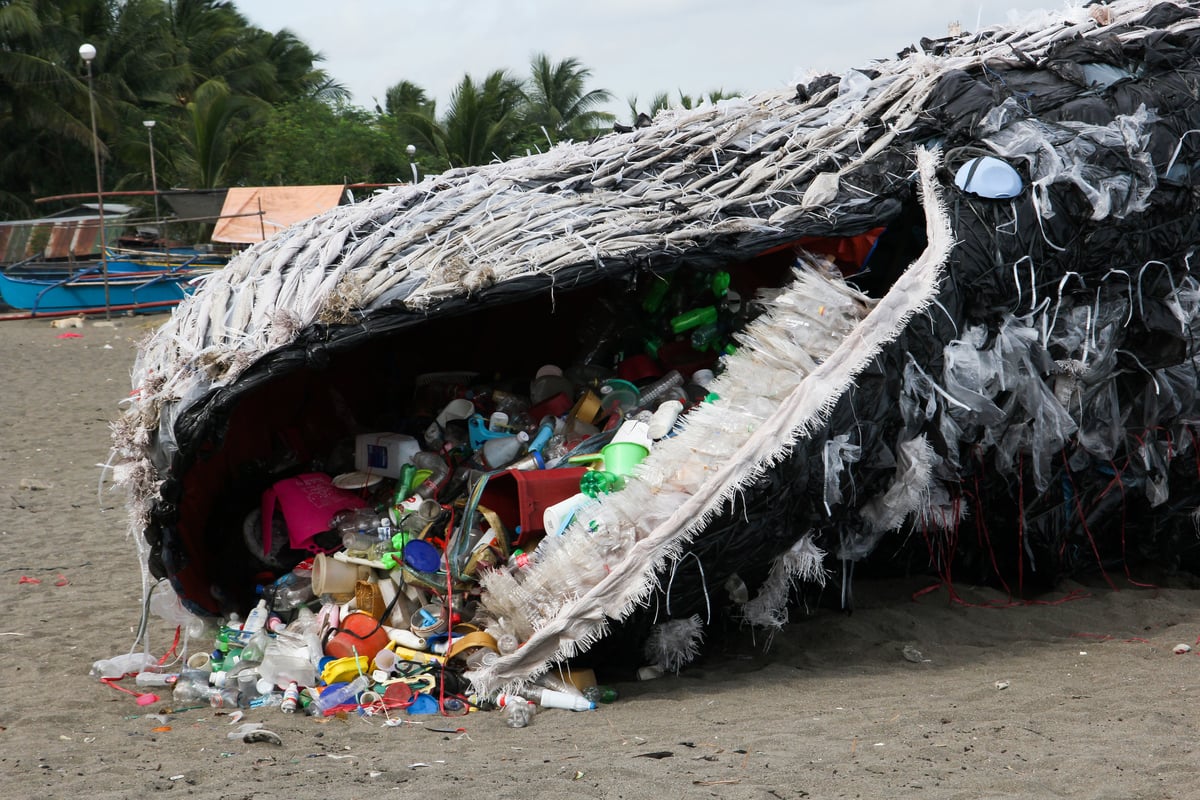
Let’s end the age of plastic!
Ask world leaders to support a strong global plastic treaty that addresses the whole life cycle of plastic.
-

Make polluters pay
Let’s stand with Filipino communities calling for an end to fossil fuels and payment for climate damages.
-

Do you know where your seafood comes from?
Hey Jerry Chou – it’s time to do your part to protect fisheries workers and our oceans.
-
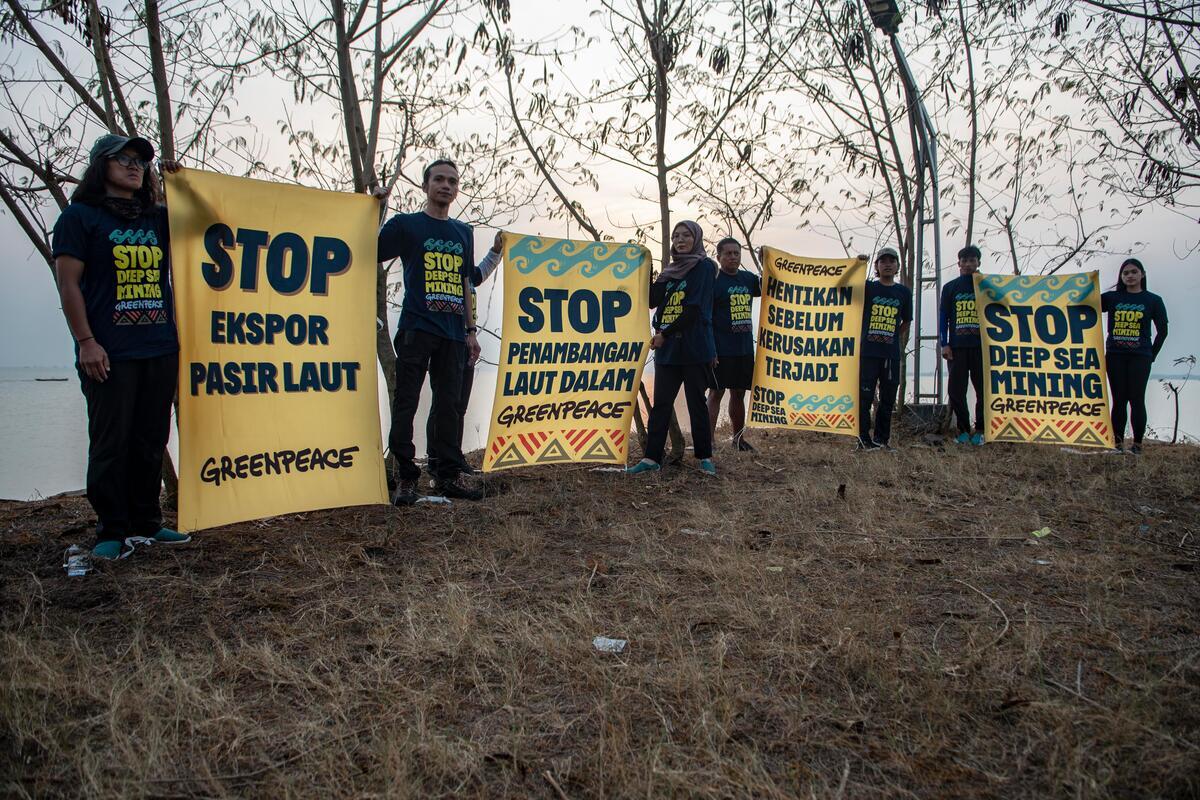
Stop Deep Sea Mining
We need a global moratorium to stop the launch of this destructive new extractive industry. Join the Campaign now.
-
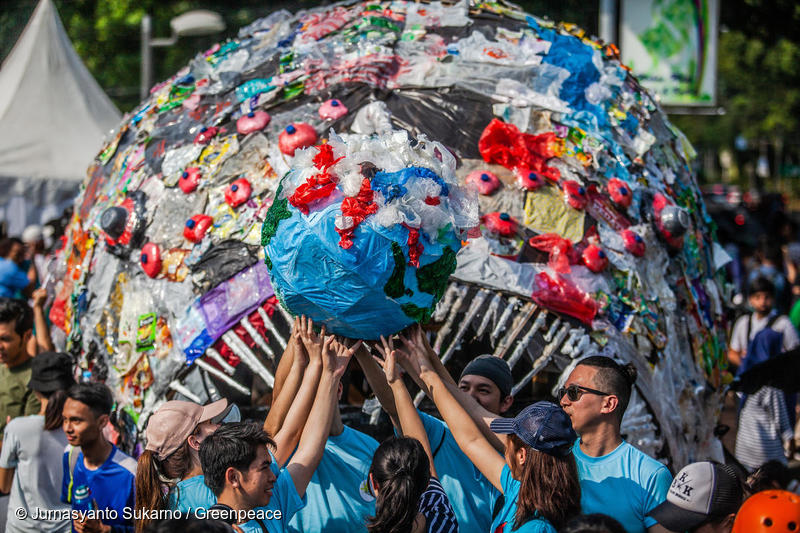
Stop plastic pollution!
Ask world leaders to support a strong global plastic treaty that addresses the whole life cycle of plastic.
-

Protect the Oceans
The threats facing our oceans are getting more urgent, find out how you can make a difference
-
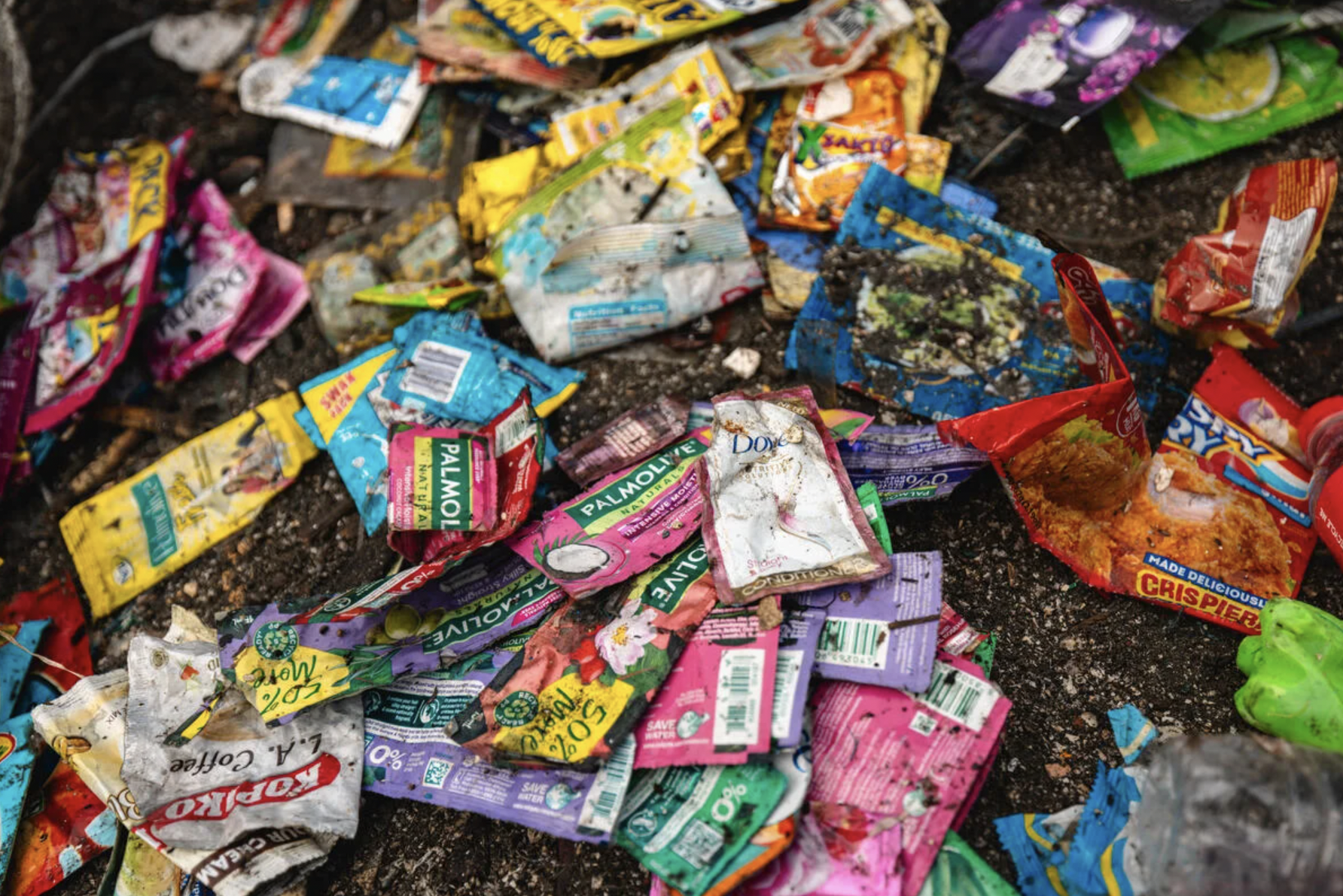
Reuse is working. It’s time for major brands like Unilever to help it grow.
Reuse at scale isn’t a distant ambition. It’s happening right now, despite the companies still profiting from the status quo.
-
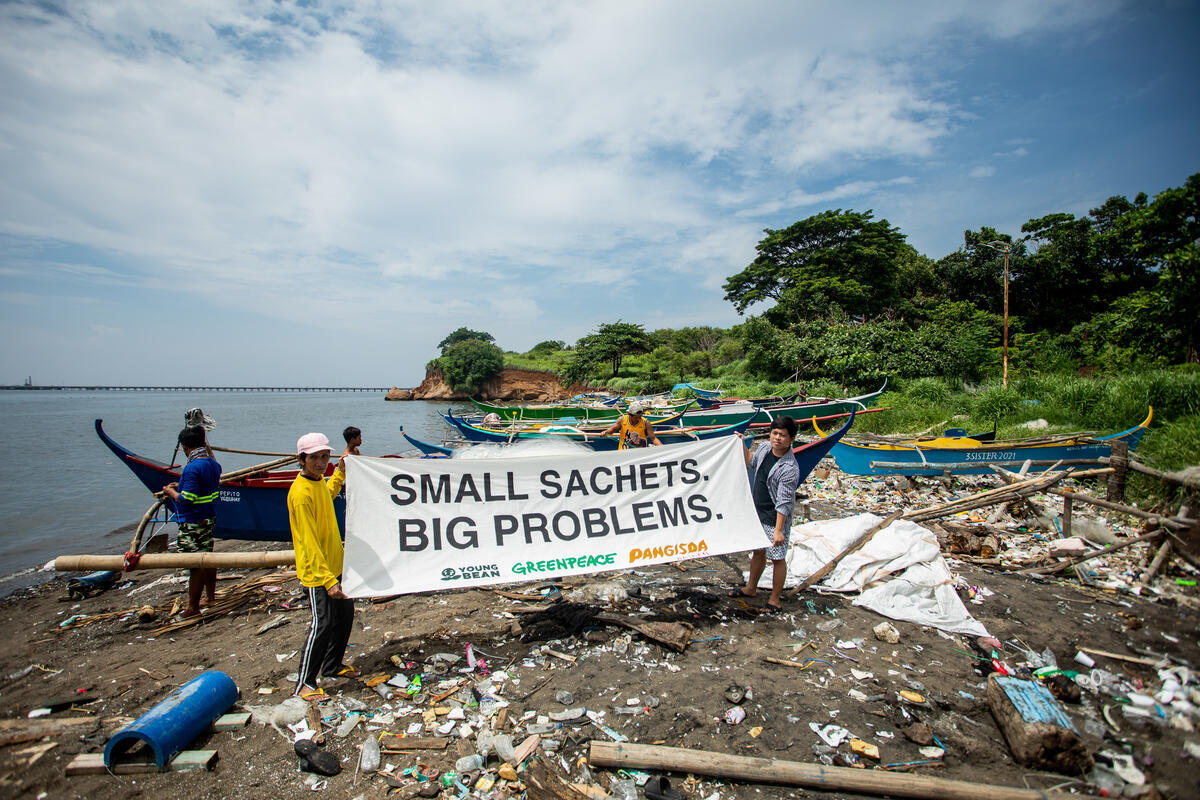
What Consumed reveals about Unilever and why the company must break its sachet habit
Brands like Unilever are now locked into disposability. Despite sustainability promises, the company continues to rely on sachets for volume and margins, even as the pollution becomes impossible to ignore.
-
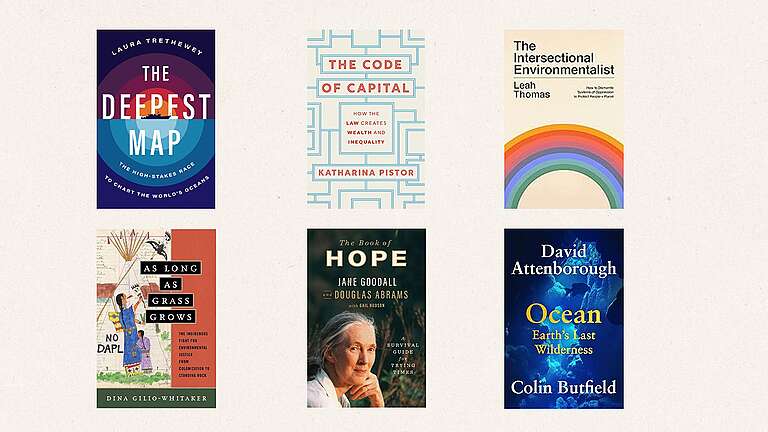
Oceans, hope, environmental justice, critiques of capitalism: 6 books to start 2026
Here are 6 inspiring books discussing oceans, critiques of capitalism, the Indigenous fight for environmental justice, and hope
Explore other topics
Keep me posted!
Sign up as a Greenpeace supporter to get the latest updates and action alerts in your country.

